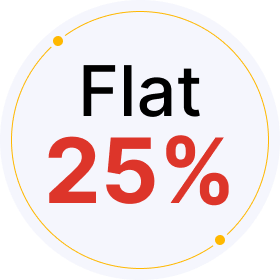
- Blockchain Council
- September 12, 2024
Virtual reality (VR) is changing various fields, including entertainment, education, and more. As this field continues to grow, pursuing a career as a VR developer can be an excellent option for many people. Here’s how you can begin your path toward VR development, even if you’re just starting in technology.
Understanding What a VR Developer Does
VR developers create engaging experiences by designing 3D environments and interactive features. This can involve games, simulations, or educational content. They use tools like Unity or Unreal Engine and code with languages such as C# or C++.
Important Skills for VR Development
To become a skilled VR developer, you need to learn several key skills:
- Programming Knowledge: Understanding languages like C#, C++, or JavaScript is important, especially when using game engines like Unity or Unreal Engine. These languages are frequently used for building VR applications.
- 3D Modeling and Animation: Knowing how to use 3D modeling software like Blender, Maya, or Unity’s built-in tools helps you create virtual objects and spaces that are essential for VR experiences.
- Proficiency in Game Engines: Unity and Unreal Engine are the leading platforms for VR creation. Unity, in particular, is popular among beginners because of its flexible nature and supportive learning community.
- Knowledge of VR Hardware: Explore various VR headsets, including devices like the Oculus Quest and HTC Vive. Knowing the hardware helps you tailor your VR projects for various platforms.
- UI/UX Design Skills: Designing user-friendly and comfortable interfaces in VR environments is essential. Mastering VR-specific design concepts ensures your applications are engaging and user-friendly.
- Problem-Solving Abilities: Development issues are common, so strong troubleshooting skills will help you fix and enhance your work.
- Ongoing Learning: VR technology changes quickly. Keep up with new tools, software updates, and trends to stay relevant.
Educational Paths
Many VR developers come from fields like computer science, game design, or similar disciplines. Nevertheless, having a formal degree isn’t the sole route. Many start with courses focused specifically on VR technology and development.
For those seeking a comprehensive learning path, the Certified Virtual Reality (VR) Developer™ program is a great choice. It covers VR basics, Unity, C#, and VR hardware integration, making it suitable for beginners aiming to grasp VR development fully. The Certified AR Developer™ program can add up to it.
Building Your Portfolio
Creating a portfolio is a key step in becoming a VR developer. Begin with simple projects that show your skills in 3D design, animation, and interaction. Examples include basic VR games, interactive simulations, or VR environments.
As you progress, try developing a VR experience using Unity and Oculus integration, topics covered in the Certified Virtual Reality (VR) Developer™ certification. Displaying these projects in your portfolio showcases your skills to prospective employers.
Gaining Experience Through Practice
Practical experience is crucial in VR development. Numerous developers enhance their skills through self-learning, participating in online communities, and contributing to open-source projects. Participating in hackathons, VR gatherings, and forums also offers valuable networking and practical learning opportunities.
Additionally, the Certified Virtual Reality (VR) Developer™ program includes hands-on modules, such as creating avatars, developing movement in virtual settings, and merging blockchain with VR, allowing you to gain applicable skills for the field.
Finding Job Openings
After developing your skills and portfolio, begin looking for job opportunities. Check job boards, attend tech events, and use platforms like LinkedIn. Engage with VR communities, attend events, and network with other professionals in the field.
Demand for VR developers is rising in areas like gaming, education, real estate, and healthcare, making it a dynamic field for newcomers with the right skills.
Keeping Skills Updated and Getting Certified
The VR industry is always evolving. To remain competitive, keep learning about the latest VR technologies and trends. Certifications, such as the Certified Virtual Reality (VR) Developer™, validate your skills and keep you informed of current industry standards, making you more appealing to employers.
Conclusion
Starting a career as a VR developer involves a mix of technical skills, imagination, and ongoing learning. Begin with suitable education and create a solid portfolio. Gaining hands-on experience is also crucial. This approach can lead to a successful journey in the VR field. Furrther, the Certified Virtual Reality (VR) Developer™ program provides essential tools and skills needed to succeed. Whether you’re new to VR development or looking to advance your abilities, this certification is an important step toward achieving your career goals in virtual reality.


































































 Guides
Guides News
News Blockchain
Blockchain Cryptocurrency
& Digital Assets
Cryptocurrency
& Digital Assets Web3
Web3 Metaverse & NFTs
Metaverse & NFTs
